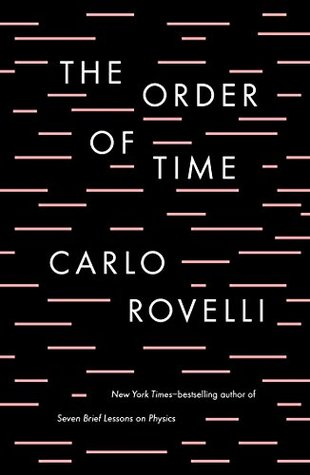More on this book
Community
Kindle Notes & Highlights
Our “present” does not extend throughout the universe. It is like a bubble around us.
Don’t take your intuitions and ideas to be “natural”: they are often the products of the ideas of audacious thinkers who came before us.
We can think of the world as made up of things. Of substances. Of entities. Of something that is. Or we can think of it as made up of events. Of happenings. Of processes. Of something that occurs.
The grammar of many modern languages conjugates verbs in the “present,” “past,” and “future” tense. It is not well-adapted for speaking about the real temporal structure of reality, which is more complex. Grammar developed from our limited experience, before we became aware of its imprecision when it came to grasping the rich structure of the world.
Now he is no longer with us. I can’t question him anymore, or tell him what I think. I can no longer tell him that it seems to me that his ideas are correct, and that they have guided me throughout a lifetime of research. I can no longer tell him I believe that he was the first to come close to the heart of the mystery of quantum gravity. Because he is no longer here—here and now. This is time for us. Memory and nostalgia. The pain of absence. But it isn’t absence that causes sorrow. It is affection and love. Without affection, without love, such absences would cause us no pain. For this
...more
Thirsting, I found in their ideas fresh, clear water to drink.
We are for ourselves in large measure what we see and have seen of ourselves reflected back to us by our friends, our loves, and our enemies.
Our present swarms with traces of our past. We are histories of ourselves, narratives.
It is memory that solders together the processes, scattered across time, of which we are made. In this sense we exist in time. It is for this reason that I am the same person today as I was yesterday.
To a large extent, the brain is a mechanism for collecting memories of the past in order to use them continually to predict the future. This happens across a wide spectrum of time scales, from the very short to the very long. If someone throws something at us to catch, our hand moves skillfully to the place where the object will be in a few instants: the brain, using past impressions, has very rapidly calculated the future position of the object that is flying toward us. Further along the scale, we plant seed so that corn will grow. Or invest in scientific research so that tomorrow it might
...more
When we cannot formulate a problem with precision, it is often not because the problem is profound: it’s because the problem is false.
We are more complex than our mental faculties are capable of grasping. The hypertrophy of our frontal lobes is considerable, and has taken us to the moon, allowed us to discover black holes, and to recognize that we are cousins of ladybugs. But it is still not enough to allow us to explain ourselves clearly to ourselves. We are not even clear about what it means “to understand.” We see the world and we describe it: we give it an order. We know little of the actual relation between what we see of the world and the world itself.
We see a coherent world that we extrapolate from our interaction with the universe, organized in simplistic terms that our devastatingly stupid brain is capable of handling.
Our thinking is prey to its own weakness, but even more so to its own grammar. It takes only a few centuries for the world to change: from devils, angels, and witches to atoms and electromagnetic waves. It takes only a few grams of mushrooms for the whole of reality to dissolve before our eyes, before reorganizing itself into a surprisingly different form. It only takes the experience of spending time with a friend who has suffered a serious schizophrenic episode, a few weeks with her struggling to communicate, to realize that delirium is a vast theatrical equipment with the capacity to stage
...more


